Trek Factory Racing decline to use disc brakes at Tour Down Under
American team planning on using new braking system later in the season
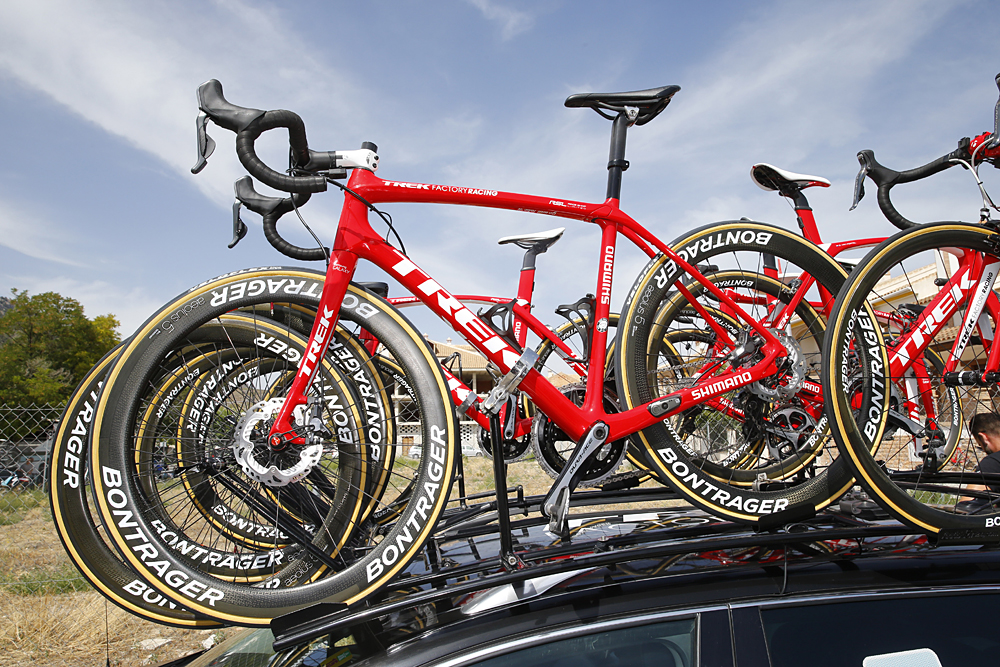
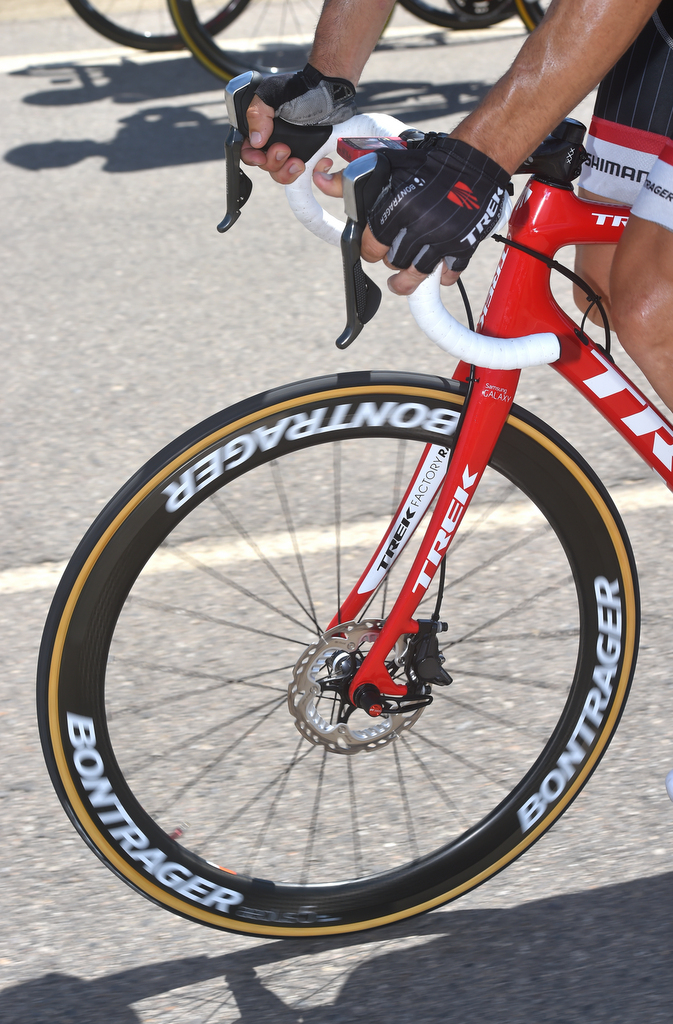
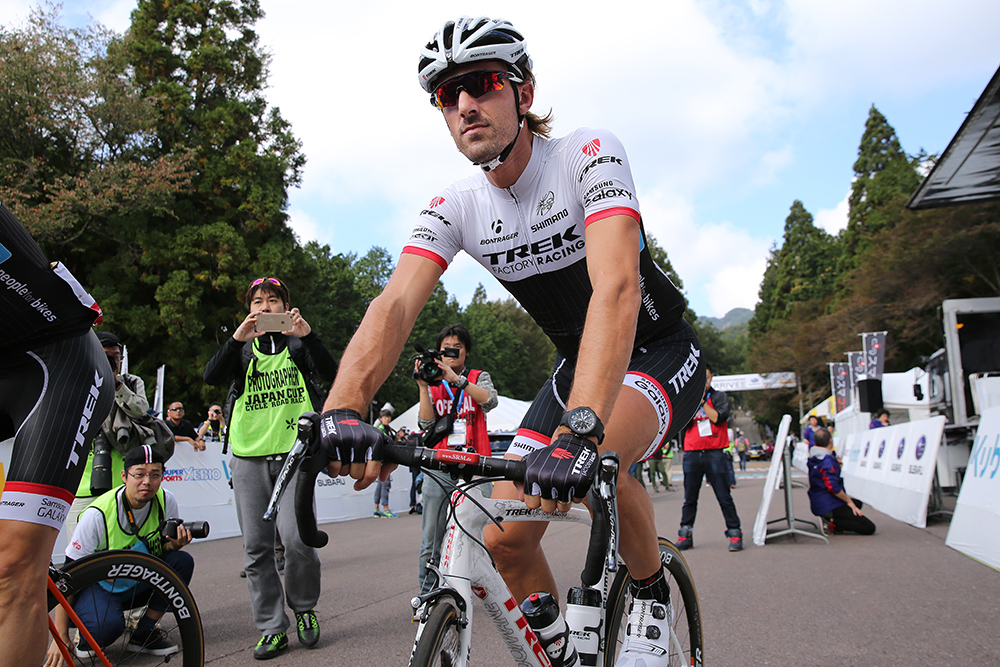
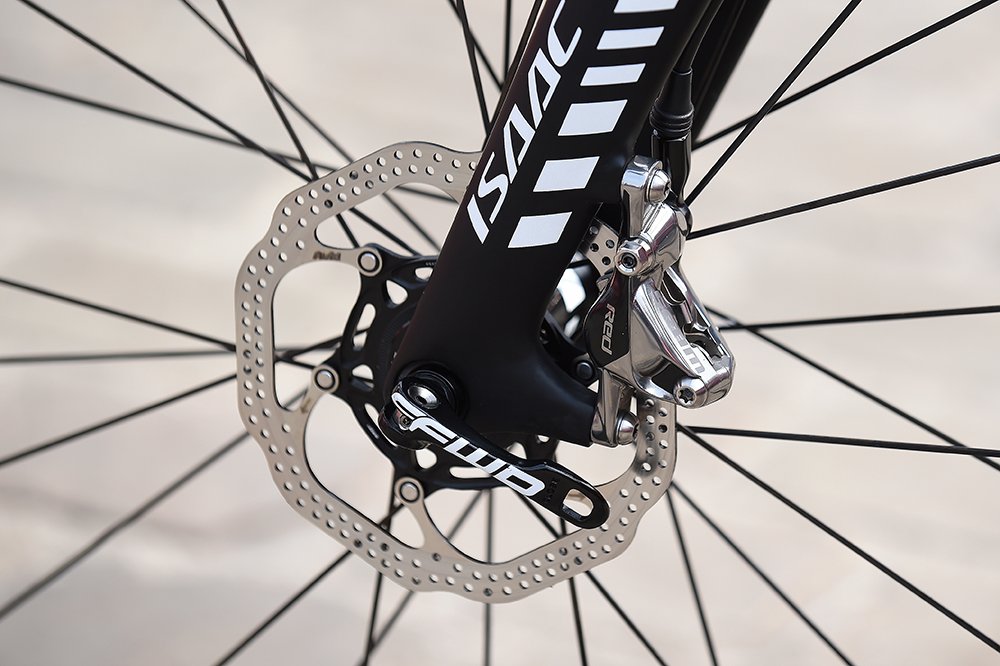
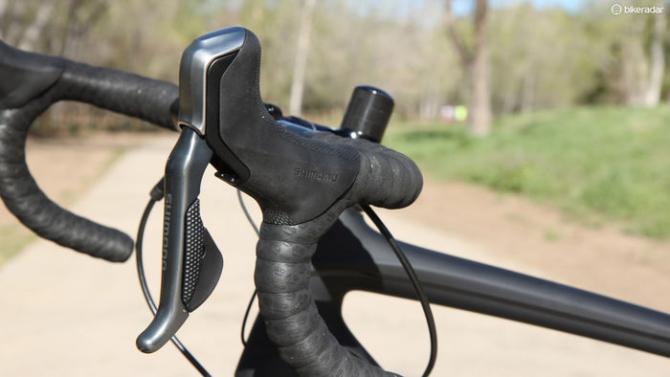
Having become the first WorldTour team to use a disc brake equipped bike at this year’s Vuelta a Espana, Trek Factory Racing has decided against continuing its trial at the first race of the 2016 WorldTour calendar, the Tour Down Under in January.
UCI approves widespread disc brakes use in 2016 professional peloton
Campagnolo, Specialized say they will be ready for disc brakes in 2016 pro peloton
News shorts: Cyclingnews readers in favour of disc brakes, Rusvelo becomes Gazprom
Nibali in favour of disc brakes in pro peloton but worried about crashes
CPA believes testing disc brakes in peloton could cause crashes
Cyclingnews understands the team has plans to use discs, most likely the disc model of the Madone as ridden by Markel Irizar at the Vuelta, at specific races with specific riders and will finalise its plans in coming weeks.
Unlike several teams in the WorldTour, there is no wait for Trek to use disc brakes with Trek bicycles and Shimano, the brake and groupset sponsor of the team, already in production of disc ready bikes, and road discs respectively. Of the three groupset providers to the WorldTour, Shimano, SRAM and Campagnolo, only the latter currently does not have a disc brake publicly available. However the Italian company has filed a patent for a fluid system hidden in the handlebars and could be ready for the spring Classics. Astana, Lotto-Soudal and Movistar rode Campagnolo-equipped bikes this season.
Following the UCI’s announcement that disc brakes can be used from January 1, there has been speculation regarding which teams and riders will take up the new technology. Astana’s Vincenzo Nibali told Cyclingnews that he is in favour of disc brakes but conceded riders will take time to adjust to new braking methods.
There is concern that disc brakes will cause greater crashes in the pro peloton with some suggestions that mass crash on stage 2 of the Vuelta was due to the greater stopping power of the disc over traditional calliper brakes.
The introduction of disc brakes into the peloton has been suggested as a way for the bike industry to boost bike sales rather than for sporting reasons with riders unsure regarding the benefits of the braking system. With no current standard rotor size and a mix of quick release and through-axle wheels being used, wheel changes following punctures and mechanicals could become slower.
With vital WorldTour points available at the Tour Down Under, WorldTour teams could follow in Trek’s footsteps in skipping the Australian race as a testing ground and instead trial the braking system at a lower ranked race.
Get The Leadout Newsletter
The latest race content, interviews, features, reviews and expert buying guides, direct to your inbox!
Watch the video below to find out more about the evolution of disc brakes and click here to subscribe to the Cyclingnews video channel